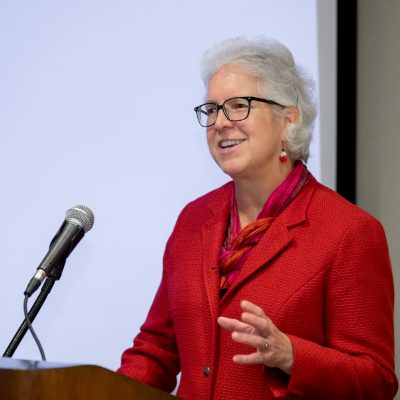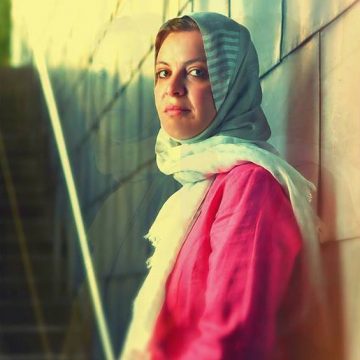Highlights from Announcements 3/11/19

Knuth on Advisory Board for AAU PhD Education Initiative
Graduate School Dean Barbara A. Knuth has been appointed to the Association of American Universities (AAU) Ph.D. Education Initiative Advisory Board.
Funded by grants from the Alfred P. Sloan Foundation and the Charles Koch Foundation, the Ph.D. Education Initiative aims to make “diverse Ph.D. career pathways visible, valued, and viable” by encouraging institutional changes, making program data widely available, and highlighting effective strategies.
Some of these goals are already underway at Cornell. President Pollack, as part of the Coalition for Next Generation Life Science, committed Cornell to making public all data pertaining to career outcomes for life sciences doctoral students and postdoctoral researchers.
Read the full AAU PhD Education Initiative story
Boot Camp Encourages Productivity
 Why do you feel you’re not ready to write?” Associate Dean for Academic and Student Affairs Jan Allen asked participants of the Graduate School’s Proposal, Thesis, and Dissertation Writing Boot Camp.
Why do you feel you’re not ready to write?” Associate Dean for Academic and Student Affairs Jan Allen asked participants of the Graduate School’s Proposal, Thesis, and Dissertation Writing Boot Camp.
“Do you feel like you haven’t read enough, like you haven’t done enough experiments, you haven’t run enough analyses? One of the ways that you know whether that’s true is to start writing.”
Developed by Cornell’s Graduate School as one of several academic writing support programs, Writing Boot Camp helps students identify strategies to be more productive writers while engaging in a supportive writing community that lasts beyond Boot Camp.
Read the full Boot Camp story and see event tips and takeaways
How I Learned to Cope with Seasonal Affective Disorder in Grad School
By Stepfanie M. Aguillon, Cornell graduate student
I roll over in bed and reach for my phone to check the time. “It’s 8:30 a.m.!” I say to myself. “How did that happen? I must have turned my alarm off and fallen back to sleep.” After some deep breaths, I manage to drag myself out of bed, get dressed, and make breakfast. At work I try to focus, but most of the day I just sit in a fog, struggling to stay awake. When I head home, I lack the motivation to go to the gym, do errands, or hang out with friends. Instead, I fall asleep on the couch shortly after dinner, only making it to bed after some gentle prodding from my dog.
Early in my Ph.D., this felt like my near daily routine. I attributed my newfound difficulties to the stress of starting a Ph.D. program and being far from home. But it was odd: Before graduate school, I was an early riser and thought most clearly in the mornings. I couldn’t understand why I was suddenly unable to get out of bed. I felt guilty about my lack of focus and frustrated that I was no longer capitalizing on my best working hours.
Feeling SAD? Consider talking with your Primary Care Provider (PCP) at Cornell Health to review your symptoms and identify strategies for relief. Appointments can be made online at myCornellHealth or by phone at 607-255-5155
Power Analysis as it Relates to our Consensual Relationships
Thursday, March 14 | 12:30 – 1:30 p.m. | Lunch at 12:15 | 102 Mann Library | RSVP
This session will allow for an in-depth discussion about the various consensual relationships that graduate students may have and to talk about elements of power inherent in them. Through a series of case studies, participants will have a purposeful and frank discussion about the complexities and realities of power differentials in interpersonal relationships and how this intersects with both personal and professional relationships. In light of the recently revised CU Consensual Relationship Policy, this session will initiate a conversation about how graduate students may interact with this policy.
Doctoral Experience Survey: Participation Requested
Doctoral Students: Please Respond to the Doctoral Experience Survey to Help the Graduate School Improve the Graduate Student Experience
Once every two years, doctoral students are invited to complete a survey to help the Graduate School learn more about the doctoral student experience, particularly what influences success and what obstacles students face. Now is that time! The biennial Doctoral Experience Survey provides an opportunity for doctoral students to share, in a confidential format, their perceptions and experiences related to academics, advising, assistantships, professional development, campus climate, career planning, university resources, and wellbeing.
The Graduate School is inviting participation from doctoral students active in a program, with an enrollment of at least four semesters and an expected graduation date after January 2019. Invitations (each with a unique link to the survey) have already been emailed to eligible students. If you received an invitation but did not respond, you’ll receive just a few reminder emails before the survey closes on March 19.
If you receive a survey invitation, please take the time to reply! A broad response is critical to ensure that the results that are truly representative. As bonus, every 10th student completing the survey receives a $10 e-gift certificate.
Student Spotlight: Rama Alhabian
 Rama Alhabian is a doctoral student in near eastern studies from Hammah, Syria. After studying at Jeddah in Saudi Arabia as an undergrad, she chose to pursue graduate study at Cornell because of its variety of academic programs.
Rama Alhabian is a doctoral student in near eastern studies from Hammah, Syria. After studying at Jeddah in Saudi Arabia as an undergrad, she chose to pursue graduate study at Cornell because of its variety of academic programs.
Read the full student spotlight
Interested in what other graduate students are doing both on and off campus?
Check out our student spotlights, Q&As with current students about their research, hobbies, and experiences at Cornell.

